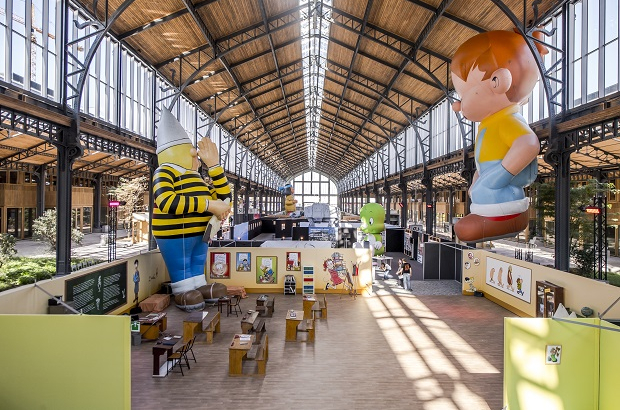- Daily & Weekly newsletters
- Buy & download The Bulletin
- Comment on our articles
Tour & Taxis: Brussels’ unique heritage site transforms into multi-purpose urban neighbourhood
Tour & Taxis' illustrious history dates from the 16th century when it was the site of a horse-based postal service linking the low countries with the rest of Europe. At the turn-of the 20th century, the marshy area was developed into one of the first multi-modal freight transport platforms in the world. Handling international trade by road, rail and water, it remained a hive of activity until slowly declining in the post-war period.
A major renovation project started in 2016 to transform the sprawling 40,000m2 area lying in the municipalities of Molenbeek and Laeken. Again, it won accolades, this time for its masterful conservation of heritage buildings, green credentials and prime example of urban regeneration.
Once the bustling hub of Tour & Taxis, where steam trains billowed smoke, the Gare Maritime freight station was an awe-inspiring example of industrial architecture. Its soaring brick and wrought iron arches and expanses of glass were testimony to the skill of Belgian engineers and workers. Today, cutting-edge technology is behind its energy-efficient smart-tinted glass and geo-thermic heating, just a few of the many sustainable design features.
Inaugurated in May this year, the new structure provides a covered space for office, shops and leisure facilities, while retaining an architectural wow factor. An integral part of the re-vamped north bank of the Brussels canal, it houses a large venue for events and exhibitions (pictured, above), a park and a collective garden project.
Business hub Be-Here
Once linked to the Gare Maritime by its own private rail track, French aperitif company Byrrh installed its own entrepot at Tour & Taxis (pictured, below). The aromatic wine was particularly popular in the 1920s and 30s, with barrels delivered by train from the southwest of France to Brussels before being bottling and redistributed across Europe. As the aperitif fell out of fashion and Tour & Taxis’ freight trade dwindled after the second world war, the depot was abandoned.
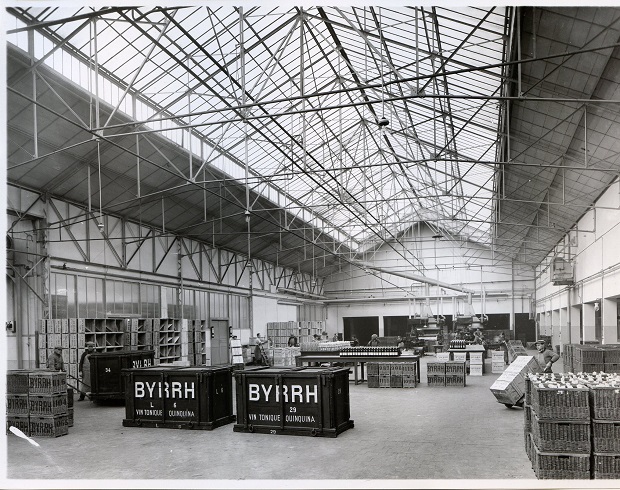
The striking corner building remained little used until being purchased in 2007 by the public social service centre (CPAS). Later, with financial aid from the Brussels-Region and European funds, it decided to transform the emblematic building into a business hub. Inaugurated in May 2019, the project focuses on sustainability and the circular economy, as well as cultural and social projects.
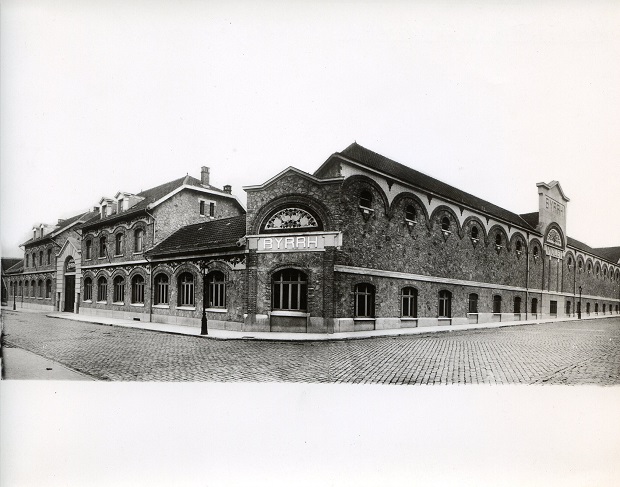
And by calling the centre Be-Here, it honoured the original name of Byrrh that still graces the listed building (pictured, above). Inspired by the wine cathedrals of southern France and boasting wine cellar facades decorated with ancient sgraffites techniques, it’s an evocative place that retains the spirit of its original purpose.
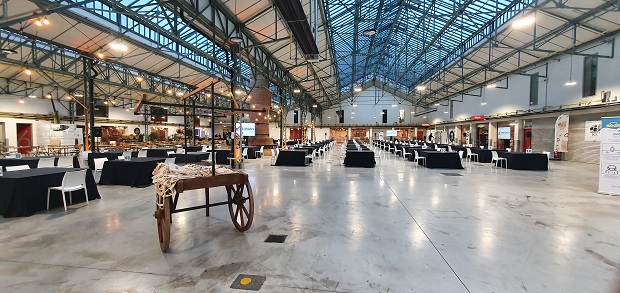
The 9,000m2 complex harbours around 20 companies. At its centre, the large and airy former depot, provides event space (pictured, above). “Be-Here is like a local sustainable village”, says Allison Oostendorp, who is responsible for its project development.
She explains its mission: “It was aimed at encouraging small entrepreneurs in Brussels looking for office and workshop space to remain in the city. They were mainly in the second phase of developing their businesses, and so it was also about creating local jobs.”
The ecological ethos was there from the start. “Today we have all sorts of businesses as well as cultural events that we either organise ourselves, or hire out space for, plus yoga classes and other activities in the health sector, such as acupuncture and hypnotherapy,” says Oostendorp.
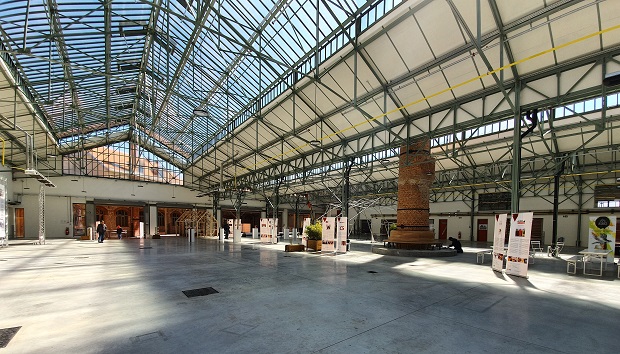
As well as a covered organic fruit and vegetable market, many of Be-Here’s companies are in the food and drink industry, including La Source brewery and Fermenthings, who are running a restaurant and taproom as well as being a B2B business.
The Covid pandemic presented challenges for all of Be-Here’s companies, explains Oostendorp, who describes how they adapted to the ongoing crisis. “They’ve done really well and have managed to evolve their business.”
With bars closed, artisan brewer La Source bought equipment to can their beer and started a shop that was also online. Fermenthings invited customers to turn up with a spoon, serving finger food and dishes in bowls. Skyfarms developed a whole range of plants and products for urban gardens and potagers. Organic sweet and savoury biscuit makers MAD LAB, “a local success story,” says Oostendorp, continue to grow their business, while new online company, My Healthy Box, began delivering their nutritional meals to schools and hospitals.
Organic chocolatier Nao sells its products in bulk and teamed up with the neighbouring food market to offer a new line in chocolate-coated dried mangoes. Other instances of the short-circuit economy in action abound, she points out. “There’s a lot of collaboration between everybody. We have good products and we try to be an open space welcoming everybody to enjoy a visit and discover our ‘village’.”
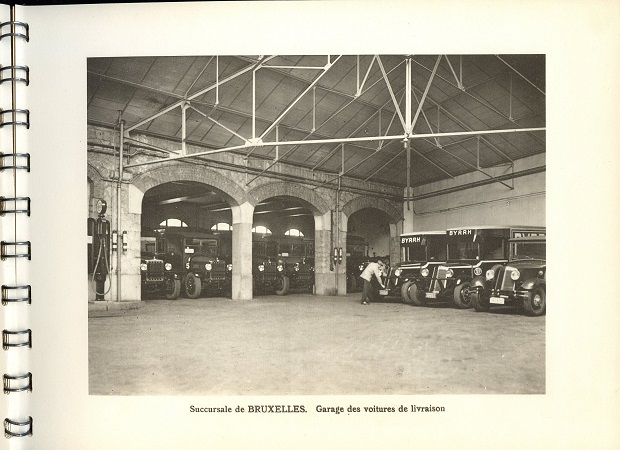 Another example of Be-Here tapping into the site’s original function, Byrrh’s former garage (pictured, above) now houses Bike Your Planet in the centre's entrance and delivery area. It's a bike shop that repairs and promotes cycling. It has been running an outdoor and indoor activity pump track for kids and novice cyclists to gain valuable two-wheel experience.
Another example of Be-Here tapping into the site’s original function, Byrrh’s former garage (pictured, above) now houses Bike Your Planet in the centre's entrance and delivery area. It's a bike shop that repairs and promotes cycling. It has been running an outdoor and indoor activity pump track for kids and novice cyclists to gain valuable two-wheel experience.
In partnership with Visit.brussels
Photos: Experience BD © visit.brussels - Eric Danhier (main image); Parc Tour-Taxis Park © visit.brussels - Jean-Paul Remy











